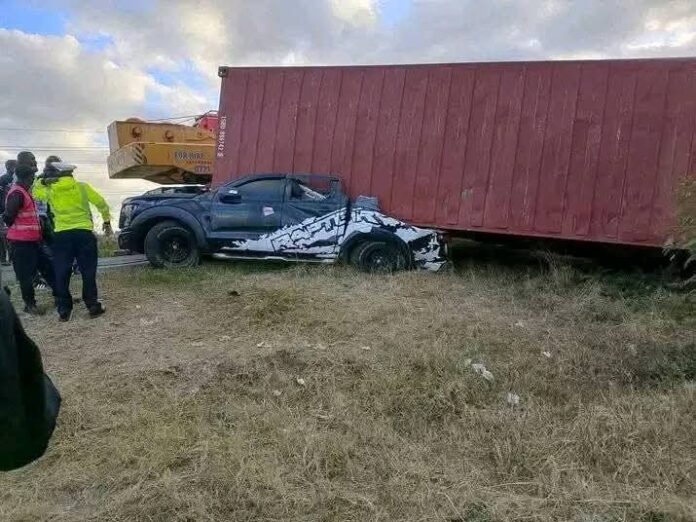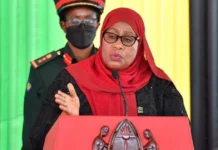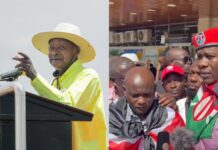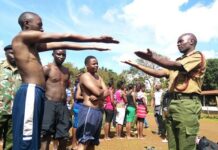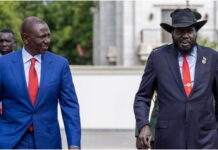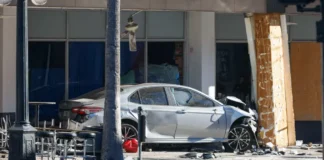The Kenya National Highways Authority (KeNHA) has broken silence over the death of businessman Dennis Kasyoki.
Kasyoki died in a road accident after a trailer crashed his four-wheel drive car along Mombasa Road in Athi River area.
Later, an eyewitness claimed the businessman could have been saved had it not been for the KeNHA regulations.
The witness narrated that after arriving at the scene of the accident, all he and his friend could think about was how to get a crane to Green Park, so that they could get the truck off Kasyoki’s Ford Ranger.
What people are not addressing is the time the rescue team(crane) took to arrive at the scene.
He said they encountered challenges getting a crane to rescue the businessman, whose car had been sandwiched by a trailer.
According to the witness, crane operators refused to rescue Kasyoki, stating that KeNHA do not allow them to operate at night.
“The accident happened around 11pm on Sunday, rescue team arrived the following day at around 7am-8am in the morning. The reason they gave was that they are not allowed by KeNHA to move at night,” the witness narrated.
“We even closed the highway for more than 5 hours all in vain. They insisted we wait until morning. Mind you, after the accident occurred, Kasyoki was talking for over 30 minutes, requesting the young boy who was sitting next to him to assist him get out,” said the witness
However, in a post on Facebook, KeNHA admitted that movements of heavy recovery equipment are restricted at night.
According to KeNHA, the restriction is usually meant to prevent additional accidents, given low visibility and high risks on the highway.
“The Kenya National Highways Authority (KeNHA) seeks to clarify that the movement of heavy rescue equipment is regulated under the East African Community Vehicle Load Control (Special Loads) Regulations, 2018 – Reg. 11(3). Which means that, for safety reasons, movement of heavy recovery equipment is sometimes restricted during the night to prevent additional accidents, given low visibility and high risks on the highway,” KeNHA said.
While insisting that its primary concern is public safety, KeNHA stated that in case of an emergency, the crane owners need to contact the authority for permission.
“Moreover, in the case of an emergency, the owner of the recovery equipment could contact the Authority and a patrol vehicle from the nearest weighbridge would provide security as they conduct the rescue services. KeNHA’s primary concern remains public safety and preservation of life,” the authority said.









